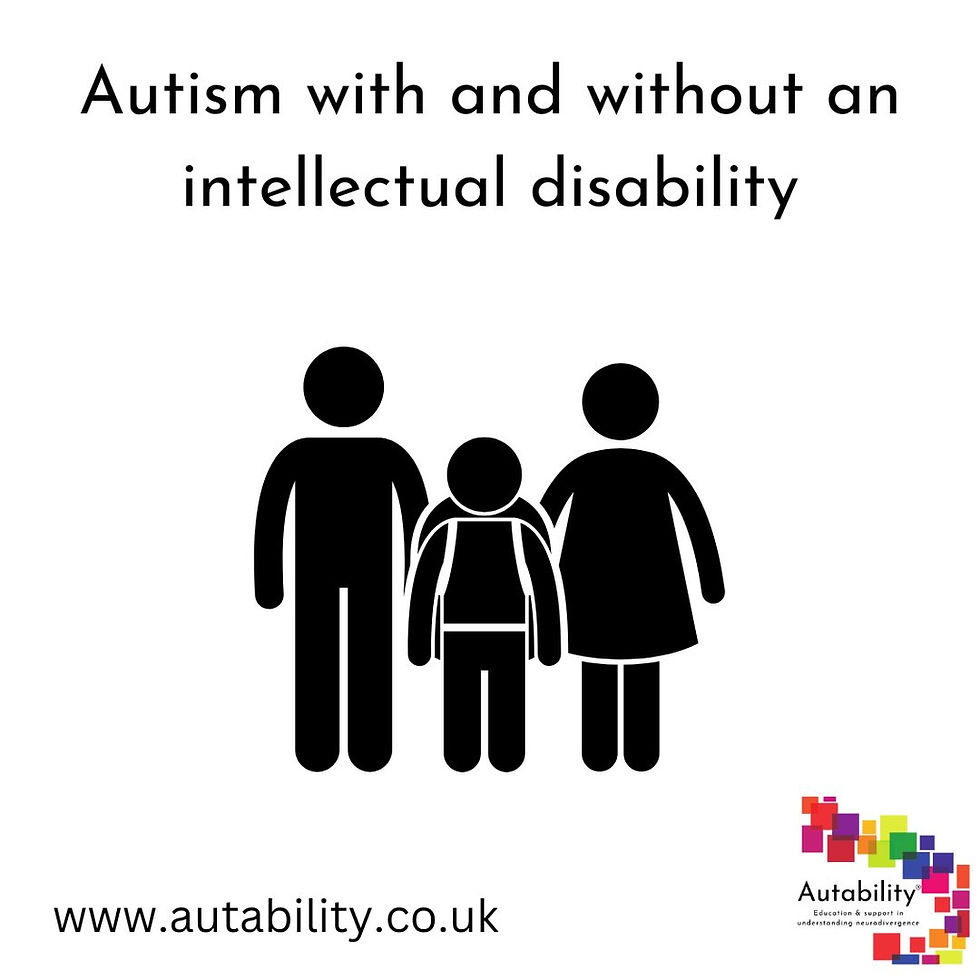Other reasons behind refusing to attend school...
- Autability Ltd

- Sep 10, 2023
- 3 min read

Now schools are back in the UK after the long summer break, many families will be battling with actually getting their children to attend. When children don't want to attend school, it can feel like a losing battle everyday. I for one never take for granted a single day my child is in school.
Very often, we hear of people saying school has to be the problem. If they don't want to leave the house, it must be because they don't want to go to the place they will end up. If you do manage to get your child there, you get told they've been fine all day and you cannot fathom why they didn't want to go in the first place.
The thing is, it's not always school that is the problem. Very often, it is the transition from home to school. For those in secondary school, it can be the multiple transitions between lessons due to classroom changes, and they experience a sensory onslaught tied in with anxiety about the movement to the next venue. But how can you tell if the problem is school or transition?
The key is in how they behave when they arrive home. Now all autistic/adhd children will need time alone to regulate after school. In our books and training we talk a lot about how to set up the home for after school in order to avoid full blown meltdowns. If a child can come home to a home that is set up for what they need and peacefully regulate, the chances are school itself isn't the problem.
I know my son reacts VERY differently when he has been somewhere that has caused him to overload vs when transition is the problem. We will have violence, distress, anger etc. But, when he has been to school, we don't have this reaction at all. He comes home, I know he needs quiet etc and I hear him happily stimming away.
Just because a child stims or talks to themselves about their day doesn't mean they haven't enjoyed it. It's simply that they need to regulate and process in order to calm down. I know when I've had a very exciting day I have to stim at home afterwards, otherwise my excitement turns to anger verty quickly, as I overload.
It's important to be aware of whether the child has finally come home to a safe place and has a meltdown that they have been holding in all day, or whether they've come home feeling "full" (as a day at school would do to most people) and something at home then overloads them before they have a chance to regulate and feel less "full".
Without really looking at these patterns, you won't know if you're putting the right support interventions in place. If the problem is transition, and you move your child to a new school, that transition problem won't disappear. If it's the home environment they come into, you're still going to have the meltdowns.
So really spend time finding out about the child's day from teachers, or get a report written down. Maybe ask your child to wrote a diary and when they have successfully transitioned home and regulated, ask them about their day.
Above all, make sure you're supporting the right issue.
.png)


Comments